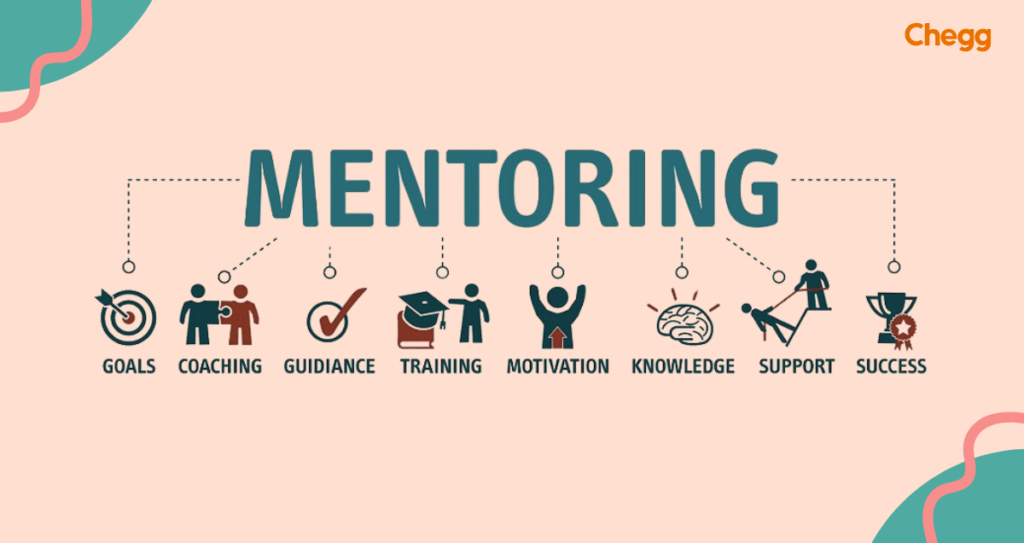

Quick Summary
- Mentoring is a valuable relationship where an experienced mentor guides a less experienced mentee, helping them grow in career and personal life.
- It builds confidence, saves time, and fosters skills through shared experiences and insights.
- Whether advancing in the workplace or managing personal challenges, mentoring provides mutual benefits, creating bonds of trust and understanding that can transform lives.
Table of Contents
Mentoring is a special relationship where someone with experience helps someone who is less experienced. It can change careers and even lives. Research shows that 76% of people believe mentors are important, yet only 37% of professionals actually have one. This data emphasizes the high value placed on mentoring and also the gap in mentorship availability.
In this blog, we will examine mentoring, why it is important, and how it can help you grow in your personal and professional life.
What is Mentoring?
Mentoring is when a person called a mentor guides someone else, known as a mentee. The person shares their knowledge, skills, and advice to help the mentee grow. The mentee learns new things and can ask questions to understand their work or life goals better. It can happen in schools, colleges, workplaces, or even in personal life.
It is not just about telling someone what to do. It’s about sharing experiences, giving feedback, and helping the mentee find their own path. It builds confidence in the mentee because they feel supported by someone who understands what they are going through.
Why is Mentoring Important?

It is important for many reasons. First, it helps people learn faster. Instead of figuring everything out on their own, mentees can learn from their mentor’s experience. This saves time and helps them avoid mistakes. Mentorship also helps people build new skills, improve their work, and become better at what they do.
It is also important because it builds relationships. A good mentor is like a trusted friend who listens and gives advice. This relationship can last a long time and be very valuable for both the mentor and the mentee. It creates a bond that is built on trust, respect, and mutual understanding.
How Mentoring Helps in Careers
This plays a big role in career development. A mentor can help a mentee understand their strengths and weaknesses. They can give advice on how to improve and grow in their career. It also helps people set clear career goals. The person can guide the mentee in making a plan to achieve these goals.
One of the best things about mentoring is that it can open doors. A mentor might introduce the mentee to important people in the industry. These connections can lead to new job opportunities or promotions. It can also teach important workplace skills like communication, problem-solving, and leadership.
Mentoring is not just for new employees. Even people who are already successful in their careers can benefit from it. A mentor can offer fresh ideas and new perspectives that help the mentee grow even more.
How Mentoring Helps in Personal Life
This skill is not just for work. It can also help people in their personal lives. A mentor can give advice on how to balance work and personal life, handle stress, or make important life decisions. It helps people see things from a different point of view, which can make them more understanding and patient in personal relationships.
For example, a mentor can help someone manage their time better. A mentor can share tips on how to stay organized and focus on important tasks. This can make life less stressful and more enjoyable.
It can also help build confidence. When people have someone they can talk to and ask for advice, they feel more confident about their choices. This confidence can lead to success in both personal and professional life.
How to Find a Good Mentor
Finding a good mentor is important for getting the most out of mentoring. Look for someone who has experience in the areas where you need help. A good mentor should be someone who listens carefully, gives honest feedback, and is willing to share their knowledge.
You can find mentors at work, in professional organizations, or even in your community. Many companies have formal mentoring programs where they pair experienced employees with new ones. If your workplace doesn’t have a mentoring program, you can still reach out to someone you admire and ask if they would be willing to be your mentor.
How to Be a Good Mentee
Being a good mentee is just as important as having a good mentor. A good mentee is willing to listen, ask questions, and take advice seriously. It’s important to be open to feedback and willing to learn.
A good mentee should also take the time to prepare for meetings with their mentor. This shows respect for the mentor’s time and makes the mentoring relationship more productive. It’s also important to set clear goals and be honest about what you want to achieve through mentoring.
The Benefits of Mentoring for Mentors
Mentoring is not just helpful for the mentee; it also benefits the mentor. Mentors can learn new things from their mentees, like fresh ideas or different ways of thinking. Mentoring helps mentors stay connected to what’s happening in their industry or field.
Mentoring also gives mentors a sense of satisfaction. Helping someone else grow and succeed can be very rewarding. Mentors feel proud when they see their mentees reach their goals and achieve success.
Wrapping Up
Mentoring is a powerful tool that can transform both careers and lives. It helps people learn, grow, and achieve their goals. Whether you are looking to advance in your career or improve your personal life, mentoring can be a valuable resource. Remember, mentoring is a two-way relationship that benefits both the mentor and the mentee. So, if you have the chance, don’t hesitate to find a mentor or become one yourself!
Also Read:
To read more related articles, click here.
Got a question on this topic?